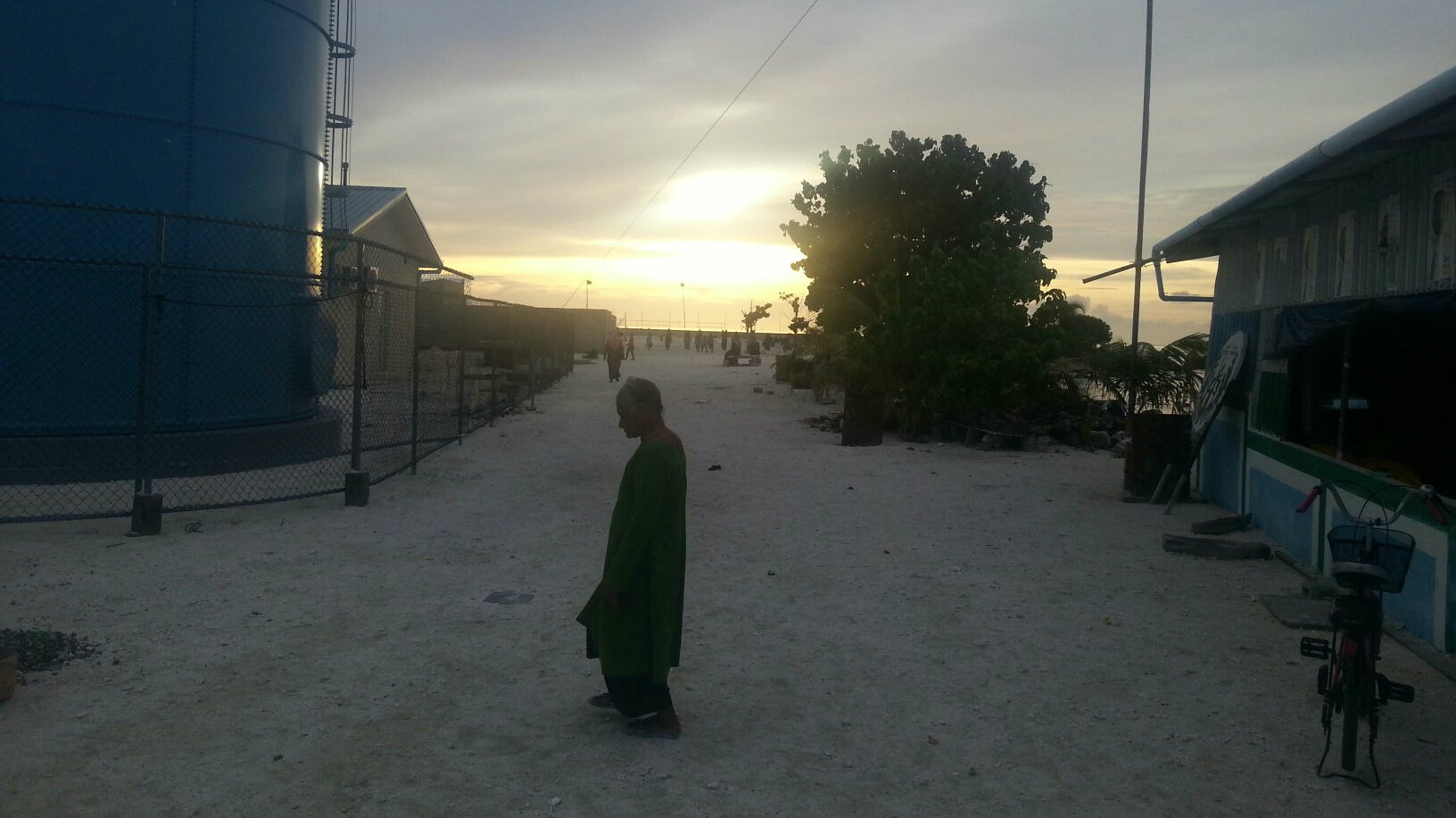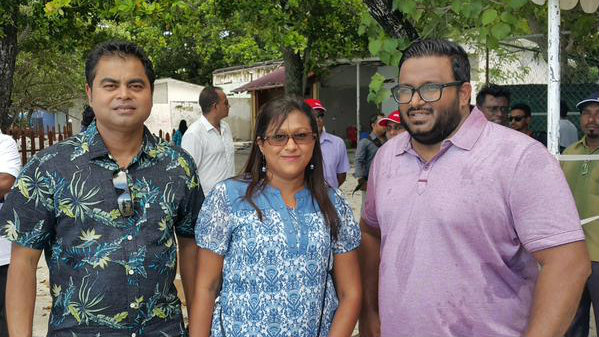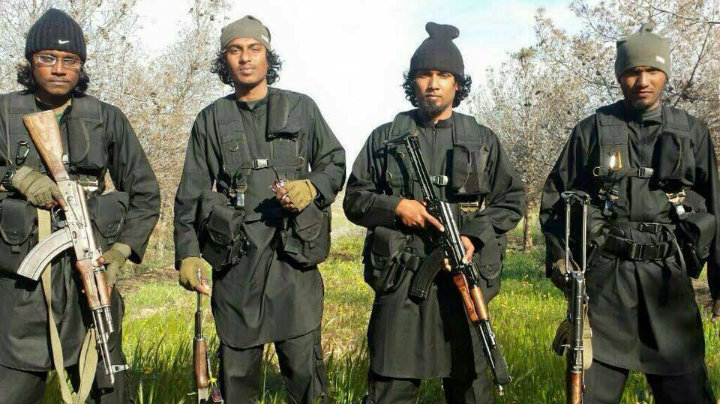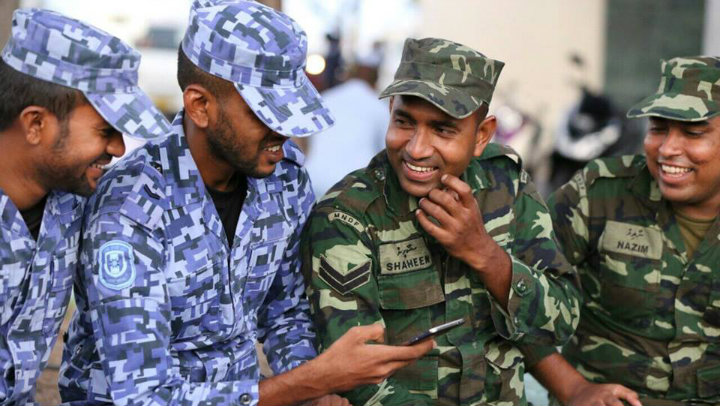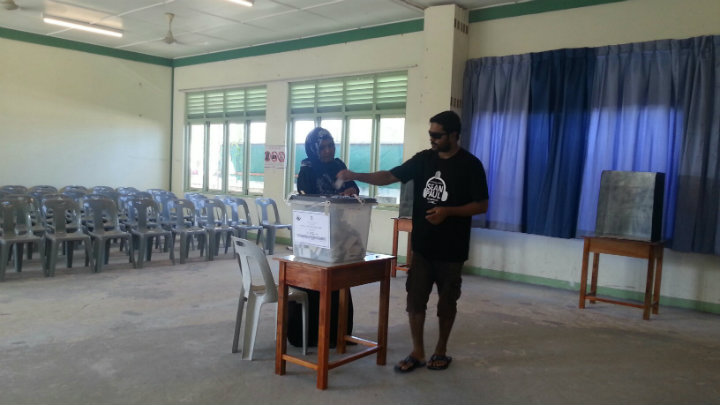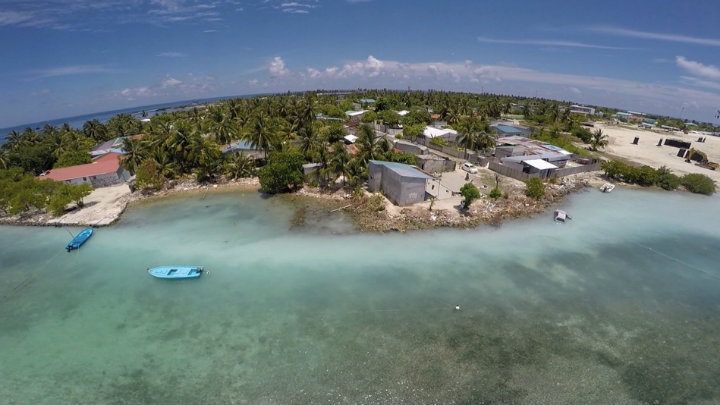Additional reporting by Ismail Humam Hamid
Abdul Sattar Hussain, an 80-year-old retired fisherman on Meemu Atoll Dhiggaru Island, has seen six presidencies in the Maldives. For him, the worst rule was that of the first president Mohamed Ameen Didi, and the best was that of the second president Ibrahim Nasir.
“Ameen made us all hungry,” he said, recalling the famine of World War Two. “We were hungry all the time. But Nasir, he is the best president this country ever saw. He got us out of eating cereal and millet.”
Lounging on a woven rope joali in the ruling Progressive Party of Maldives’ (PPM) haruge, Sattar took off his dark glasses, rubbed it with his checkered sarong and declared: “After Nasir saved us it hasn’t been all that bad. It’s not that bad now either.”
Sattar is content. He does not expect much from the central government.
The people of Dhiggaru are proud fisherpeople. Their wives dry tuna, and make rihaakuru, a tuna paste famous throughout the Maldives. Their young men take up fishing or go work at luxury resorts nearby. Most invest their earnings into building single-storied brick homes on family plots.
Life, on this small and quiet island, has remained unchanged for decades.
On Saturday, Dhiggaru was at the centre of Maldivian politics. A parliamentary by-election, triggered by the surprise imprisonment of MP Ahmed Nazim, took place.
The PPM candidate and son of a former president, Ahmed Faris Maumoon, won against the main opposition Maldivian Democratic Party’s (MDP) Ahmed Raazee with 59.4 percent of the vote.
For the besieged central government, the by-election victory was a demonstration of support in a politically charged time. The PPM’s coalition partners had allied with the MDP in March and had launched daily protests in Malé over the jailing of ex-president Mohamed Nasheed.
But here on Dhiggaru, the politics of Malé is far removed.
Successive governments have neglected Dhiggaru. The people lay the pipes for a rudimentary sewerage system by hand and built half of the sea wall encircling the island. The men prefer to work hard during the day and sleep with their wives at night. Political party rivalry exists, but is muted. The economy, unlike that of most small islands, is self-sufficient.
Political party membership is divided according to neighbourhoods. The north supports the MDP, while the south, where the majority live, support the PPM.
Sattar lives in the southern ward. “I go with whatever they pick. That’s not for me as an individual to decide,” he said.
“I don’t know much about that”
Some 1,300 people are registered as Dhiggaru residents, but only 944 live on the island. The majority is middle-aged. Here, everyone knows everyone. Most are related to each other.
“We do not take political party rivalry personally,” Mariyam Hassan, 53, said. “What is the benefit of that? We talk to each other, help each other and try to live peacefully.”
Most people do not have much to say about democracy, the government’s performance, or the jailing of the MP who had represented them for 20 years.
“What is democracy? What is it like? I don’t know anything about it,” said Aishath Hassan, a dedicated 61-year-old PPM activist.
For the people of Dhiggaru, a parliamentarian is not a lawmaker, but an official elected to help the community in their time of need, mostly in paying medical bills.
Nazim is admired in Dhiggaru. Most, no matter which political party they support, have received his help. He was jailed for life on corruption charges, after he reportedly fell out of favour with President Abdulla Yameen and his tourism minister Ahmed Adeeb.
“When I was little he bought me my school books. He bought schoolbooks for my daughter. And recently, when one of my family members got sick Nazim sent him abroad for medical treatment with a family member,” Khalida Hussain, 42, said.
In his 20-year tenure, Nazim built a computer lab at the island school and is credited with the construction of the island health post, although the funds came from the state budget. Most voters said they want a man like Nazim to represent them in the Majlis.
“We are hoping to elect a man as loyal to us as Nazim,” Afeefa Abdulla, 53, said.
“Nazim is a very kind, loyal man. He brought many developments to Dhiggaru. If you go to him ask for help he would never turn you down,” Usman Mohamed, 64, said.
When asked about Nazim’s imprisonment, many said: “I have nothing to say about that.”
A 28-year-old MDP supporter, Dawood Abdul Gadhir said: “If anyone commits a crime he has to pay for it. But I have no information about it.”
Content
Dhiggaru islanders do not have much, but they seem content.
Mohamed Munavvar is only 20 years old. By dawn he is out at sea. But on Friday, he was home because of bad weather. “It’s just fishing. It’s not hard if you love what you do,” he said.
A fisherman makes an average of MVR10,000 (US$648) per month. The fisheries sector is small and dependent on skipjack tuna.
“People ask us why we don’t build bigger fishing boats to catch yellow fin tuna, which is more lucrative. But then, we would have to travel longer distances and we will be out for at sea for weeks. We would rather spend all the money we get on this island and come back to our wives at night,” Mohamed “Gadha” Hussain, 38, said.
Some young men, however, expressed discontent with the lack of employment opportunities.
“There are no jobs here. You either go fishing or end up in a resort. I just finished my A ‘levels. I will have to go and work in a resort probably,” Ibrahim “Dida” Humaid said. “The other option is going to Malé City for work. A lot of young people are there already.”
Dhiggaru islanders have one wish – for the government to reclaim land from the lagoon and increase the land area of the now-13 hectare island.
“We want to own land. We want more people here. Every government has promised that, but its all lies,” Munavvar, the 20-year-old fisherman said.
During president Maumoon Abdul Gayoom’s time, a small sliver of land was reclaimed at the harbour. During Nasheed’s time, another area was reclaimed to the south of the island.
In the weeks leading up to the by-election, the government promised several development projects. An x-ray machine and air-conditioning units were delivered. A contract was signed for harbour renovation. President Yameen promised a new power generator, a new sewerage system, and said PPM constituencies will be prioritised for development in 2016.
Meanwhile, Faris has promised that the government will develop five resorts close to Dhiggaru.
Excavators and heavy machinery were brought on to Dhiggaru. But work has not begun yet.
With Faris’ win, some hope the island will be reclaimed, but many opposition supporters said they do not expect much progress.
“These machines are not going to be here for that long. Whatever the results of the elections may be, these are going to go from here,” Dawood Hassan, 28, said. “We haven’t seen any development in Dhiggaru for ages. But now that its election time, we are hearing many stories and plans for development. I think there is something awfully wrong in this.”
“Yameen recently said he is hoping the work will be done by next year. So we don’t know anymore. It progressing slowly,” Ahmed Nishan, an MDP council member of Dhiggaru island council said.
